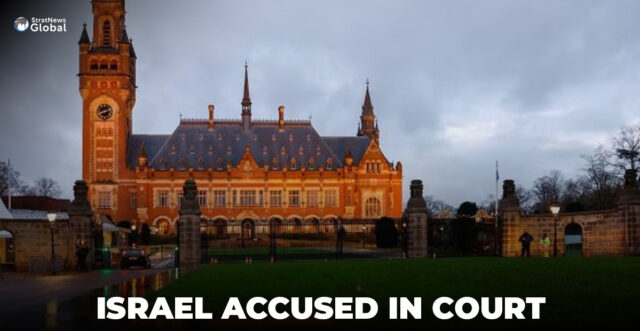Israel will be accused of violating international law by blocking aid to the Gaza Strip, as dozens of countries are set to present arguments at the International Court of Justice during a week of hearings beginning in The Hague on Monday.
Since March 2, Israel completely cut off all supplies to the 2.3 million residents of the Gaza Strip, and food stockpiled during a ceasefire at the start of the year has all but run out.
In December, the U.N.’s top court was tasked to form an advisory opinion on Israel’s obligations to facilitate aid to Palestinians that is delivered by states and international groups, including the United Nations.
Israel has said it would not allow the entry of goods and supplies into Gaza until Palestinian terrorist group Hamas releases all remaining hostages.
Europe Urges Israel To Adhere To Law
Germany, France and Britain last week called on Israel to adhere to international law by allowing the unhindered passage of humanitarian aid into Gaza, after Israel reiterated that no aid would be allowed to enter Gaza, in order to pressure Hamas.
U.S. President Donald Trump on Friday said he had pushed Israeli Prime Minister Benjamin Netanyahu to allow food and medicine into the besieged Palestinian territory.
Israel has repeatedly accused Hamas of hijacking humanitarian aid that was allowed into Gaza. Hamas has denied the allegations and has blamed Israel for shortages.
The resolution adopted in December by 137 of the 193 nations in the U.N.’s General Assembly called on Israel to comply with its obligations towards the Palestinian population, as it expressed “grave concern” about the dire humanitarian situation.
Israel, the United States and 10 other countries voted against the resolution, while 22 countries abstained.
Representatives for the Palestinian territories will be among the first to address the court in The Hague on Monday.
Israel is not among the roughly 40 nations that will speak during the five days of hearings scheduled through Friday. The United States will state its opinion on Wednesday.
Advisory opinions of the ICJ, also known as the World Court, carry legal and political weight, although they are not binding and the court has no enforcement powers.
(With inputs from Reuters)





